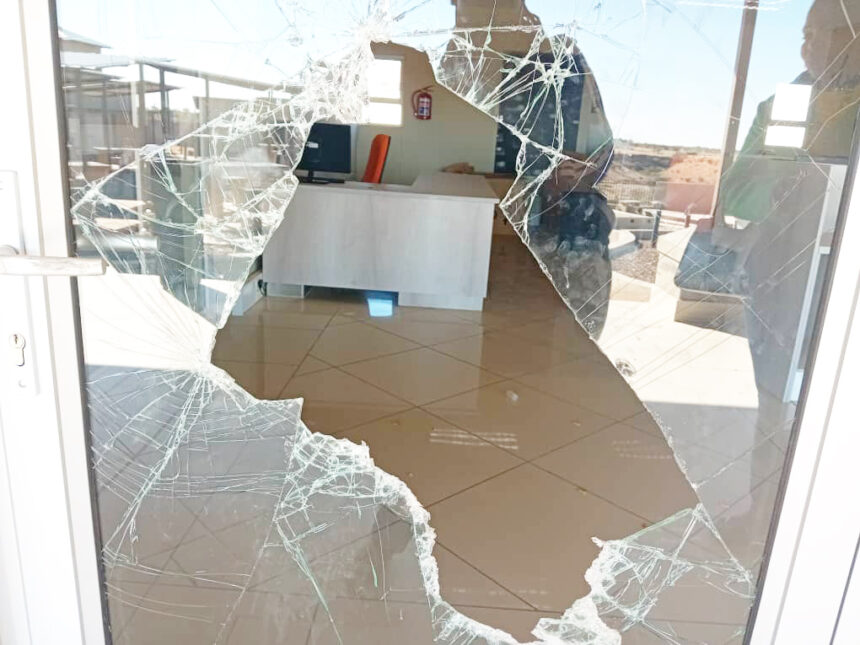Lahja Nashuuta
The Namibia Industrial Development Agency (Nida) is under mounting scrutiny from communities and lawmakers following revelations of many under-performing and abandoned projects across the country.
This has reignited calls for the decentralisation of infrastructure management to local authorities.
The state of some of Nida’s industrial parks has deteriorated, while others have turned into white elephants because of poor oversight and neglect.
This criticism follows a damning report by the National Council’s Standing Committee on Public Accounts and Economy, tabled last week.
The report stems from oversight visits in January to Nida-managed industrial parks and agro-processing facilities in the //Kharas, Oshana, Zambezi, Kavango West and Otjozondjupa regions.
Nida, which implements the Site and Premises Programme on behalf of the Ministry of Industries, Mines and Energy, is mandated to provide affordable workspaces to small and medium enterprises (SMEs). However, critics believe the agency is failing to deliver on its mission due to widespread neglect, unaffordable rental fees and the absence of basic services.
Although Nida maintains that its average rental rate is N$20 per square metre, which is below the commercial average of N$60, the report notes that tenants in marginalised areas still find the rates prohibitive, especially given the deteriorating facilities.
“If swift action is not taken, millions in public investment could be lost due to neglect, mismanagement and inadequate oversight,” the committee warned.
Among the visited parks, at the Omulunga Industrial Park in Grootfontein, tenants reported their water supply was disconnected in February 2024, forcing them to bring water from their homes to sustain operations. Most have since vacated, including nursery owners. Copper pipes for water delivery were reportedly stolen, and have yet to be replaced.
The site also suffers from a lack of lighting and security, which has led to repeated break-ins and significant financial losses. Tenants said they submitted a formal complaint to then-trade minister Lucia Iipumbu in April 2024, but received no response. In Otjozondjupa, the committee found the Kalkfeld SME Park completely abandoned and exposed to vandalism. At the Otjiwarongo SME Park, some businesses were operating without water due to unpaid municipal bills. Nida reportedly owes the Otjiwarongo Municipality N$150 000.
Although Nida paid N$180 000 in December 2024 for prepaid water meters, water services had not resumed when the committee made a follow-up visit.
Similar water-related issues were reported at the Grootfontein SME Park and the region’s Biomass Project. During a courtesy meeting with the Otjozondjupa Regional Council, local officials expressed frustration, saying they had not even been informed about the biomass project. “This clearly shows the disconnect between Nida and regional stakeholders,” one official stated. “How are we supposed to support projects if we are kept in the dark?” said the official in the report.
In Keetmanshoop, the Homs Ai Project stood deserted, with no tenants due to water and electricity cut-offs. The committee observed broken window panes, damaged infrastructure and general disrepair. Notably, Nida officials were absent during the inspection, and could not explain how State-owned sewing machines and garment-making equipment had been relocated to a private facility operated by a private institution without authorisation.
“No formal agreement exists between Nida and the company, and none of the equipment was tagged,” the report stated, raising serious concerns about asset misappropriation and governance failures. Despite these widespread issues, the government has allocated N$50 million for the 2025/2026 financial year to the Industrial and Business Development Programme under the ministry.
The funds are intended for the construction of new industrial parks in Omaruru, Walvis Bay and Tsumeb, as well as the upgrading of nine existing SME and industrial parks in towns including Eenhana, Katima Mulilo, Keetmanshoop, Oshakati and Windhoek.
Additionally, new platforms for informal traders are planned in Henties Bay, Mariental and Okalongo. In his budget motivation speech, Deputy Prime Minister and Minister of Industrialisation, Mines and Energy Natangwe Ithete stated that the programme seeks to “foster innovation, improve access to technology and enhance the capacity of emerging businesses.”
Dose
The committee made several key recommendations, including the decentralisation of the control of SME and industrial parks to local authorities to improve responsiveness and community ownership. It also urges the installation of individual water meters, the restoration of essential services such as electricity and security, and stronger communication between Nida, regional councils and other stakeholders.
Parks
Back in 2023, New Era revealed that four business parks in the Hardap region -which cost taxpayers around N$43 million – were deserted. The small and medium-sized business parks were in Gochas, Gibeon, Hoachanas and Kalkrand.
Residents complained that these parks are deserted, serving as hot- spots for drug use and other illicit activities, instead of fulfilling their intended purposes.
The failure to meet expectations was attributed to high rental costs and bureaucratic hurdles in stall allocation, turning the business parks into white elephants.
The parks were constructed in 2015 to help SMEs tap into the lucrative tourism market of the region. Years later, broken window panes and doors as well as notices of ‘closed’ greet any visitor to these sites.


